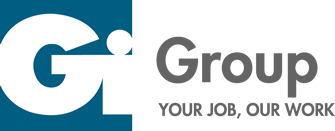Time waits for no one in a candidate driven market, meaning decisive action is necessary if you don’t want to lose the top candidates for your vacant roles. Failure to attract top talent can lead to significant revenue and productivity losses as knock-on effects.
While organisations should only ever invest in candidates that possess the right skills and cultural fit for their business, the simple fact is that companies no longer have the luxury of dwelling on important recruitment decisions. The longer you take to make a hiring decision, the lower the quality and performance of new hires will be because top candidates will likely drop out.
Unemployment is at its lowest since the early 1970s and vacancies at an all-time high. Candidate availability for permanent roles has been steadily decreasing since May 2013 according to statistics published by the Recruitment Employment Confederation, meaning that candidates who are actively looking for new roles undoubtedly now hold the cards in today’s employment market. The most sought-after candidates will assuredly receive many opportunities to make quick offer acceptance decisions while you are still gathering feedback and mulling over candidates, midway through your hiring process.
Increasingly we are seeing businesses frustrated by missing out on preferred candidates yet they persist with complex and protracted recruitment processes. It is therefore more important than ever to streamline your approach. In the current climate, too many phases of interviews or too many layers of internal involvement are likely barriers to success and could, especially for business critical roles, have a detrimental impact on the bottom line.
To better understand the need to review and update processes businesses and recruiting managers need to put themselves in the candidate’s shoes. There is already a reluctance to make moves in this period of economic uncertainty. Candidates who are active in the market are therefore looking for clarity and a swift resolution in their search. Even for senior appointments, in which expectations may be for a longer recruitment process, their patience will falter if candidates are continually being asked to meet with every senior business leader in the company.
Communicating the process and stages upfront, and importantly, sticking to it is therefore important if you are to keep them engaged. Don’t forget, you are unlikely to be the only person speaking to them. When it comes to millennial candidates it is worth remembering that they are used to a consumer-focused world where everything is available now. With the market loaded in their favour too, they will not tolerate a drawn out approach. In fact, current expectations are to be interviewed within two weeks and be offered a job within three.
It is also worth remembering that indecision and delays merely create doubt in candidates’ minds about the intentions of the hiring company. Inevitably, if you fail to engage with the candidate and recruiter, or are too slow to act, you will lose out on the best talent. The reality is that organisations will be fighting over their services. Furthermore, a negative recruitment experience will impact how candidates engage with your brand, making future recruitment more difficult.
So, what can businesses do to maximise their chances?
- Once the decision to recruit is made, map out the intended process.
- Ensure relevant stakeholders will be available at short notice and understand the importance of clear and rapid decision making.
- Clearly communicate the agreed stages to your recruiter and prospective candidates.
- Do not deviate from this midway through.
- Agree and limit any decision makers in advance. Do not recruit by consensus as each additional opinion adds time into the process.
- Trust your recruiter’s judgement. Brief them to put forward only the cream of their shortlist and back their recommendations.
Attracting the best talent is vital to your business’s success. In a candidate driven market, with low unemployment and high levels of vacancies, elongated or inconsistent recruitment processes can cost you the top candidates. By introducing and maintaining an efficient and effective hiring strategy, you can be sure to stand out from the crowd and position yourself as a preferred employer for the talent pool.











